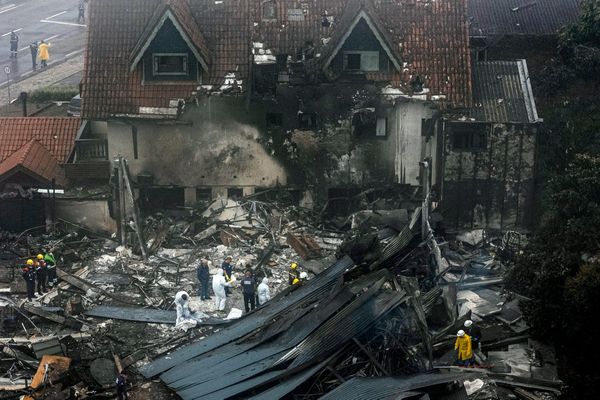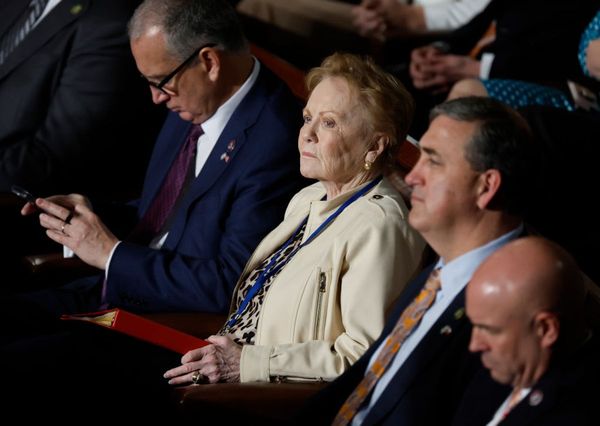Here are five things you must know for Thursday, August 4:
1. -- Stock Futures Waver After Two-Day Rebound Ahead of Key Jobs Data
U.S. stock-index futures were flat on Thursday after the major averages snapped a two-day slide as investors weighed positive earnings reports and U.S. economic news against the prospect of continued tensions surrounding Asia and Taiwan.
Futures tied to the Dow Jones Industrial Average gained 25 points or 0.08%. S&P 500 futures were flat and Nasdaq 100 futures lost 0.06%. The yield on the benchmark 10-year Treasury note moved higher to 2.7574% and the yield on the 30-year Treasury bond also rose to 3.0138%.
The Chinese military launched live-fire drills around Taiwan, coming unusually close to the self-governing island and causing delays for ships and air traffic to protest a visit by U.S. House Speaker Nancy Pelosi that Beijing says violated its sovereignty.
Stocks got a boost on Wednesday on the back of strong second-quarter earnings and economic reports for June and July that led investors to look past the possibility of a recession.
The Dow advanced by more than 400 points, while the S&P 500 hit its highest level since June. The tech-heavy Nasdaq Composite jumped about 2.5%. The yield on the benchmark 10-year Treasury note dropped to 2.7337%, while the yield on the 30-year Treasury slipped to 2.9710%.
On the data front, investors will get a read on the number of new applications for U.S. unemployment benefits at 8:30 a.m. ET. They are estimated to have edged lower in the week ended July 30. The U.S. trade deficit is forecast to have narrowed in June, for the third consecutive month.
The key economic number will come Friday, however, when July’s nonfarm payrolls report is released. Analysts polled by FactSet are expecting 250,000 new jobs were added to the economy last month following June's 372,000 gain.
In overseas markets the Stoxx Europe 600 rose 0.4%, led by shares of retailers, travel and auto companies. Deutsche Lufthansa rose 4.9% after the airline swung to a profit and forecast high ticket demand. Rolls-Royce fell 4.3% after the engine-maker posted a loss in the first half.
In Asia the Shanghai Composite Index rose 0.8%, recouping some losses sparked by tensions over Taiwan. Hong Kong’s Hang Seng Index rose 2.1%.
2. -- Walmart Slashes Hundreds of Corporate Jobs
Walmart (WMT) is cutting hundreds of corporate roles in a restructuring effort, joining other larger companies in scaling back their labor costs amid slowing economic growth and declining profits.
The Wall Street Journal reported Thursday that the Bentonville, Ark. retailer began notifying employees in its headquarters and other corporate offices of the restructuring, which affects various departments including merchandising, global technology and real-estate teams.
Around 200 jobs in total are being cut, according to the Journal.
Walmart was among several retailers caught off guard this spring as shoppers shifted their spending away from high-demand pandemic-related products and to other ‘return-to-normal’ goods that arrived late due to supply-chain snarls.
Target (TGT) in June issued a profit warning after it reported quarterly results that, like Walmart, showed a surge in inventory levels. Last week, Best Buy cut its sales and profit goals, saying consumers had pulled back on electronics.
Walmart is the largest private employer in the U.S. and while much of its workers are hourly staff, it has thousands of people in corporate roles. Walmart employed 2.3 million worldwide, including 1.7 million in the U.S., as of Jan. 31.
Last week, Walmart warned that its profit would decline in the current quarter and fiscal year because it was having to mark down apparel and other merchandise that has piled up in its stores. The retailer said higher prices for food and fuel were causing U.S. shoppers to pull back on other categories that are more profitable for it.
TheStreet Recommends: Tesla Rival Reveals Why People Buy EVs (It's Not Environmental)
3. -- Eli Lilly to Sell Covid Antibody Treatment Commercially
Eli Lilly (LLY) plans to begin commercial sales of its Covid-19 monoclonal antibody treatment to states, hospitals and other healthcare providers this month, as the federal government’s supply of the drug is nearly depleted.
According to the Wall Street Journal, Eli Lilly expects the treatment, called bebtelovimab, to be covered under Medicare and Medicaid, which the company said should help many people get access at little or no cost.
The move marks a shift away from the way Lilly’s drug and most other Covid-19 treatments and vaccines have been distributed in the U.S. It will likely be the first test of whether the vaccines and treatments would remain accessible if shifted to a commercial market.
Previously, Lilly sold all of its Covid-19 antibody doses for use in the U.S. via contracts with the federal government. The government has made doses available for free to patients and has overseen allocation to states and pharmacies.
The government will exhaust its own supply of bebtelovimab as early as the week of Aug. 22, a spokeswoman for the Indianapolis-based company said in a statement. Without new appropriations from Congress, the government lacks funds to purchase more doses from Lilly, the spokesperson said.
To ensure broad access to bebtelovimab—which has held up against the more transmissible Omicron variant and its BA.5 subvariant – Eli Lilly will make it commercially available for purchase by states, territories and hospitals through a sole distributor beginning the week of Aug. 15, according to the Journal.
Bebtelovimab, which was introduced in 2022, is the third Covid-19 antibody treatment introduced by Lilly. Two earlier ones proved to be ineffective against the Omicron variant.
4. -- Lucid Shares Slide on Reduced Delivery Guidance
Lucid (LCID) shares were down more than 12% in premarket trading on Thursday after the electric vehicle maker again cut its production targets amid supply chain and logistics woes that have dented the company’s ability to deliver new cars.
Lucid said it now has over 37,000 reservations for its Air electric luxury sedan, up from more than 30,000 in May – but it delivered just 679 cars in the second quarter. In February, it said that it expected to build between 12,000 and 14,000 vehicles in 2022, down from an original forecast of 20,000.
It cut its full-year deliveries guidance for a second time, saying that it now expects to deliver just 6,000 to 7,000 vehicles in 2022, and announced a new senior executive to lead operations.
The announcements came as Lucid reported second-quarter revenue of $97.3 million and a loss of 33 cents a share. The company had $4.6 billion in cash and equivalents as of the end of the second quarter, down from $5.4 billion at the end of March.
Lucid said in April that Saudi Arabia’s government had agreed to buy up to 100,000 of its vehicles over the next 10 years. The country’s public wealth fund is a major investor in Lucid, holding roughly 62% of the company’s shares.
To help address its production issues, Lucid announced Wednesday it has hired Stellantis veteran Steven David to serve as its senior vice president of operations, taking charge of the company’s manufacturing, logistics and quality-control efforts.
Shares of Lucid were down 12.01% at $18.09 in premarket trading.
5. -- Tesla Shareholders Expected to Clear 3-for-1 Stock Split
Tesla (TSLA) shareholders are expected to clear the way for the company to complete its second stock split in about two years.
Elon Musk’s electric-vehicle maker, whose stock price has roughly tripled in the past two years, is planning a 3-for-1 stock split that the company has said is designed to make ownership more accessible to employees and individual investors.
Tesla needs shareholders to sign off on issuing the new shares to complete the split. The move wouldn’t affect the company’s market value, which topped $960 billion as of Wednesday.
That proposal is among more than a dozen facing investor consideration at Tesla’s annual shareholder meeting, scheduled to be held at the company’s Austin, Texas-area factory at 4:30 p.m. CT.
The investor gathering is likely to spotlight concerns that some shareholders have expressed about Tesla’s corporate governance. Several of the nonbinding proposals deal with employment issues, from corporate efforts to prevent harassment and discrimination to how mandatory arbitration affects Tesla’s employees and workplace culture.
The gathering follows a recent rally in Tesla’s stock price after the company reported second-quarter earnings that were better than expected. Tesla generated $2.3 billion in profit for the period, ahead of Wall Street’s expectations but below its record quarterly profit of $3.3 billion in the first three months of the year.
Shares of Tesla were up 1.28% at $934 in premarket trading.







